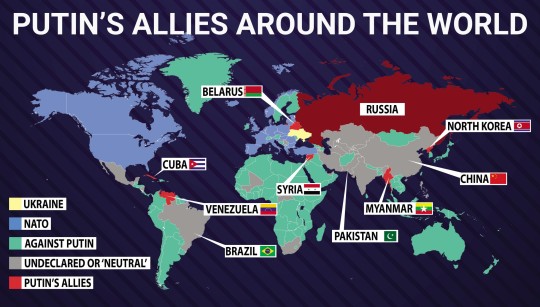
As the horrific fallout of Russia’s full-scale invasion of Ukraine sends shockwaves around the world – a crisis within a crisis is developing.
This is the scourge of racism.
Let's talk about it 👇🏿
trib.al/F7rQQnq
This is the scourge of racism.
Let's talk about it 👇🏿
trib.al/F7rQQnq
There are verified accounts of Black and ethnic minority people being barred from leaving the country, being held at gunpoint at the borders, and being forcibly removed from buses that would take them to safety.
The Ukraine government has even acknowledged the racist abuse that Black people have been subjected to while trying to flee from Russian attacks in their country. 

However, despite the multiple accounts from individuals and an admission from UK officials that this discrimination is happening, Black and ethnic minority refugees are being gaslit about their experiences, or told that now ‘is not the time’ to talk about race.
It’s happening here in the UK too.
Broadcaster Charlene White had to shut down critics who accused her of ‘playing the race card’ when she spoke powerfully about the plight of Black and brown refugees on Loose Women.
Broadcaster Charlene White had to shut down critics who accused her of ‘playing the race card’ when she spoke powerfully about the plight of Black and brown refugees on Loose Women.

Racism is also bleeding into people's reactions to the conflict, and how it's being reported in mainstream media and social media.
Broadcasters have been called out for their use of language surrounding this war, and how it differs to wars in predominantly non-white countries.
Broadcasters have been called out for their use of language surrounding this war, and how it differs to wars in predominantly non-white countries.
On CBS News, foreign correspondent Charlie D’Agata later apologised after he said: ‘This is a relatively civilised, relatively European city where you wouldn’t expect that or hope that it is going to happen.’ 

In criminology there is the concept of an ‘ideal victim’, who will typically be young, white and often female. This type of victim will be afforded more empathy and willingness to act from society.
Professor Matthew Williams is the author of The Science of Hate, he says the way Ukrainian refugees are being presented in contrast to refugees from other parts of the world is a good example of this phenomenon.
Of course, many people at the borders of Ukraine are acting with the utmost compassion and humanity, doing everything they can to provide assistance, clothes, shelter and transport for refugees – regardless of skin colour.
But that is not the entire picture.
But that is not the entire picture.

'Standing with Ukraine and highlighting the inhumane racism individuals are facing are not conflicting or mutually exclusive positions,’ says psychologist Lee Chambers.
Read more about the racism faced but Ukraine refugees here 👇🏿 trib.al/F7rQQnq
• • •
Missing some Tweet in this thread? You can try to
force a refresh











